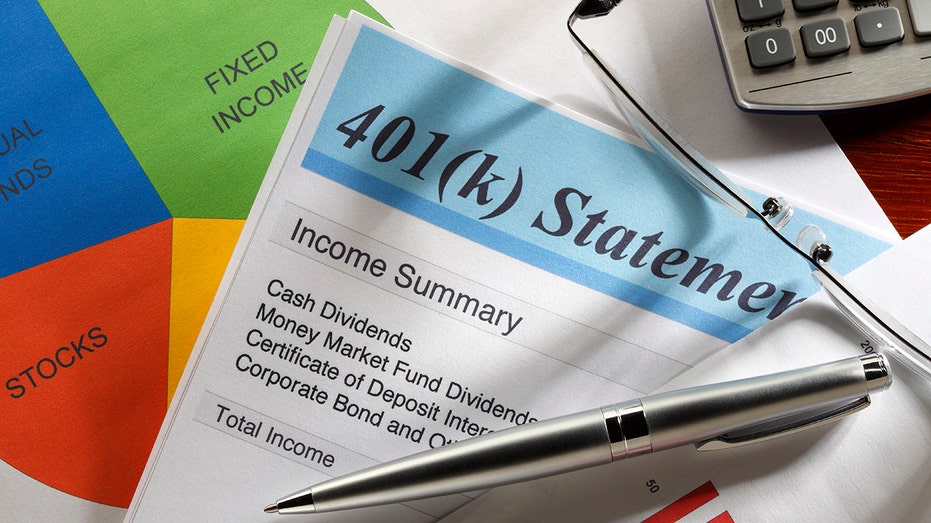401(k) plans include these hidden benefits you need to know about
Explore how 401(k) perks can shape your retirement savings strategy
A 401(k) is a profit-sharing plan that allows Americans to save money for retirement while they maintain their working status in the decades prior to retiring. Employees contribute portions of their wages to the account and often, companies match a certain percent of contributions.
While many are well aware of a 401(k)'s primary function, there are several lesser-known aspects that can significantly impact an employee's financial state.
Let's read about the hidden benefits of a 401(k) plan that might have eluded your consideration.
4. Leverage loans from your 401(k)
WHAT IS A 401(K) RETIREMENT PLAN?
1. Employer 401(k) match
Beyond the mere act of contributing to your 401(k), there's often a component known as the employer match. This is essentially free money offered by your employer, a match for a portion of your contributions.
"Depending on the terms of the 401(k) plan, an employer may choose to match your contributions dollar-for-dollar or offer a partial match. Some employers may also make non-matching 401(k) contributions," reads Forbes.

A close up of a 401(k) statement with a pie chart indicating asset allocation. (iStock / iStock)
This employer match not only adds value to your overall compensation package, but also serves as a powerful incentive, encouraging employees to actively participate in securing their financial future.
2. Tax advantages to 401(k)
While the tax advantages of contributing to a 401(k) are well-known, the full arrangement of tax efficiency might surprise you.
Contributions to a traditional 401(k) are made with pre-tax dollars, reducing your taxable income for the year. Moreover, the growth within the 401(k) account is tax-deferred until withdrawal in retirement, allowing your investments to compound more effectively.
IS NOT HAVING A 401(K) AS A BENEFIT BECOMING A DEAL BREAKER FOR NEW HIRES?
3. Roth 401(k) contributions
Many may not realize that some 401(k) plans offer a Roth option.
If you choose to save money in a Roth 401(k), matching contributions must be allocated to a separate traditional 401(k) account. This is because IRS rules require you to pay regular income tax on employer contributions when they are withdrawn — and Roth 401(k) withdrawals aren’t taxed in all but a few cases.

Having a 401(k) is important for millions of Americans seeking to retire. (Reuters / Reuters Photos)
Contributions to a Roth 401(k) are made with after-tax dollars, meaning they won't reduce your current taxable income. However, the real beauty lies in the fact that qualified withdrawals in retirement, including earnings, are entirely tax-free.
4. Leverage loans from your 401(k)
Life is unpredictable, and financial needs may arise unexpectedly. What many don't realize is that some 401(k) plans allow for participant loans.
While it's generally advisable to avoid tapping into your retirement savings prematurely, having the option for a loan can provide a safety net in times of genuine need, offering a more flexible approach to managing unforeseen financial challenges.
HIGHER CONTRIBUTION LIMITS ARE COMING FOR 401(K)S AND IRAS NEXT YEAR
"It's often seen as a negative route to take, since it means depleting the money you are saving and investing for your future. But, when taken in the right way—usually up to $50,000 can be borrowed, and it must be repaid—your retirement savings should not be negatively impacted," according to investopedia.com.
5. 401(k) creditor protection
In the event of financial hardships, your 401(k) is often protected from creditors. This protection can be a crucial benefit, providing a layer of security for your retirement savings even in the face of unforeseen financial difficulties.
Many assume their retirement funds are protected from creditors, but depending on the type of retirement account you have, and the state you live in, this may not be the case.

A person puts money into a retirement savings jar. (iStock / iStock)
"Retirement accounts that qualify under the Employee Retirement Income Security Act (ERISA) are generally protected from creditors, bankruptcy proceedings and civil lawsuits," says investopedia.com.
6. Reduce taxable income
Every contribution you make to your 401(k) is a stealthy salary increase.
By diverting a portion of your income into your retirement savings, you effectively reduce your taxable income. This is a subtle way to boost your overall compensation package without any immediate impact on your take-home pay.
7. Catch-up contributions
For those who find themselves behind on their retirement savings, the catch-up contributions allowed for individuals aged 50 and older can be a powerful tool.
These additional contributions enable a more accelerated approach to building your retirement nest egg, compensating for any lost time in earlier years.
GET FOX BUSINESS ON THE GO BY CLICKING HERE
For 2024, the annual limit on employee contributions to a 401(k) is $23,000 per year for workers under age 50. However, those aged 50 and over could make a $7,500 catch-up contribution, according to investopedia.com.




















